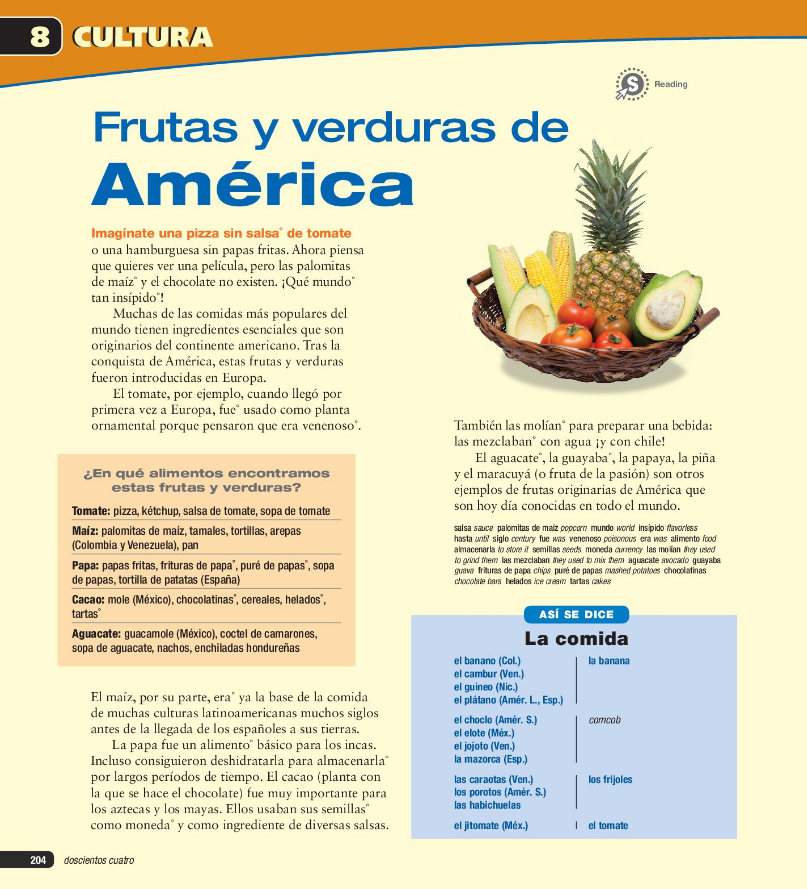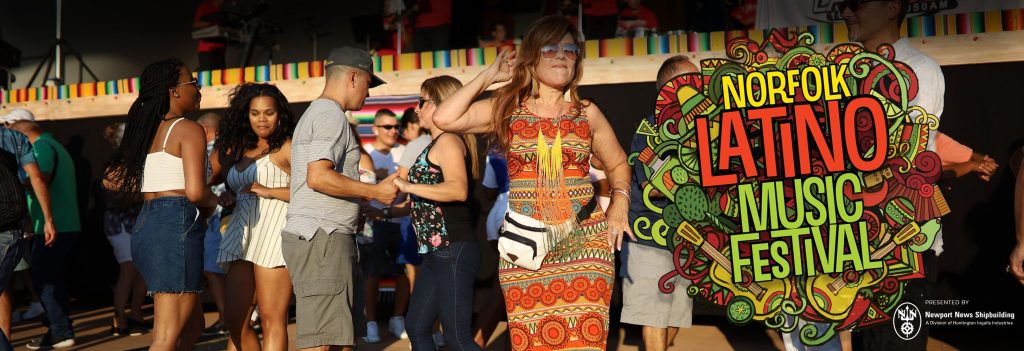Interpretive, Interpersonal, and Presentational Modes of Communication
Exploring Culture
This semester enabled me to go deeper into my understanding surrounding Spanish culture by introducing me to more and broader cultural aspects through things such as class readings and discussion boards. Our textbook included reading sections on topics such as festivals, marketplaces, and monuments throughout Hispanic countries. Likewise, our discussion topics encompassed interesting research opportunities like genres of Latin music.

It is always interesting encountering cultural content within our learning because it allows me to place all of the language learning skills I have developed so far into context. When I learn vocab words about fruits or culturally specific terms such as “siesta”, reading the articles included in our textbook or doing research for these discussion boards allow me to place those words in a situation that might closely match one I might live out in a Spanish speaking country and further enables me to switch up my English-centric mindset.
Engaging in Communities
Involving one’s self in their community provides ample opportunity to expose one’s self to a variety of perspectives and experiences that can not be had by only being surrounded in a single culture or society. Virginia is a diverse place full of people eager and willing to share their experiences with those who might not otherwise have the chance to partake in them, and every so often a festival or celebration of this diversity is being held for the entire state to participate and learn from.

The Norfolk Latino Music festival was one of the largest festivals I had ever attended. My friend was a volunteer at the festival, and I attended alongside her has I am fascinated with foreign genres of music and felt that not only would a Latino music festival be the perfect place to expose myself to Spanish in a natural setting, but also to meet other people from different backgrounds and help out to create an environment that fostered positive exposure to the world of Latino music–both to veteran listeners and those who had stumbled upon the genre or festival by chance!
Interpersonal Communication
This semester, I completed Spanish conversational assignments such as TalkAbroad conversations (online oral conversations with native Spanish speakers), Voice Thread assignments answering questions about Spanish language statements, and entrevistas between myself and my language partner.
Though my speaking skills can still improve by miles, I actually enjoyed the opportunities I got to practice Spanish with others. Learning how best to make the sounds of Spanish flow naturally in conversation has been incredibly useful, as I find reading to only be half of the battle when it comes to being able to accurately portray the complexities of Spanish pronunciation and enunciation. Being able to speak with others is helping me build my confidence, and I learned to be less afraid of making mistakes when doing so–as someone was always there to assist me.
Presentational Writing
This semester, I did a number of composition assignments meant to demonstrate the writing skills I have developed throughout our chapters. I was urged and encouraged to make composition assignments more meaningful by lengthening the size of sentences and testing out more complex sentence structures as we encountered more advanced vocabulary.
compostition-espanolThis composition, from around the middle of the semester, demonstrates one of the first assignments in which I was asked to assemble my knowledge of both existing vocabulary and new verb tenses (in this case, preterite) to construct complex sentences. These compositions demanded more requirements of me as the semester went on–one of which being an assignment where I had to write a paragraph in the style of a school article depicting leisure activities for students. This practice allowed me to learn how to craft longer, more natural sentences.
Interpretive Listening
The interpretive listening assignments I’ve had to complete this semester included occasional listening-based pruebas, listening sections on chapter tests, and regularly listening to Spanish stories and songs in an attempt to grow my listening skills outside of school.
This is an example of a Spanish song I would often listen to in order to develop my listening skills. Throughout all of my listening practice, I would first listen to the material a couple of times, looking out for words I already knew or lines I could translate. Then, I would listen again alongside a transcript in Spanish to check my work. Then, I would listen to the material multiple times over without the transcript, until I could recite it from memory. Though I consider listening to be another big area of improvement of mine, by doing this–much like speaking practice–I was enabled to learn proper enunciation of Spanish words as read by native speakers.
Interpretive Reading
Besides the cultural articles included in our textbook, I also sought out Spanish language stories outside of school to practice my interpretive reading skills on. Likewise, I would often watch movies in English but with Spanish subtitles on to practice reading and develop my vocabulary a bit further.
spansh-storiesI think reading familiar stories such as children’s fables in Spanish was beneficial because I was able to use the information I already know about the story to make educated guesses at vocabulary words I did not recognize. I consider reading to be my strongest skill, because much of my college language learning involved reading information out of a textbook as opposed to listening-based learning methods such as Rosetta Stone. Thus, being able to read so many materials in Spanish, and learning how to make vocabular inferences, has allowed me to learn many more vocabulary words that I otherwise would have missed if I were simply listening or speaking. However, one thing I want to work on is developing my weaker skills in tandem with reading.